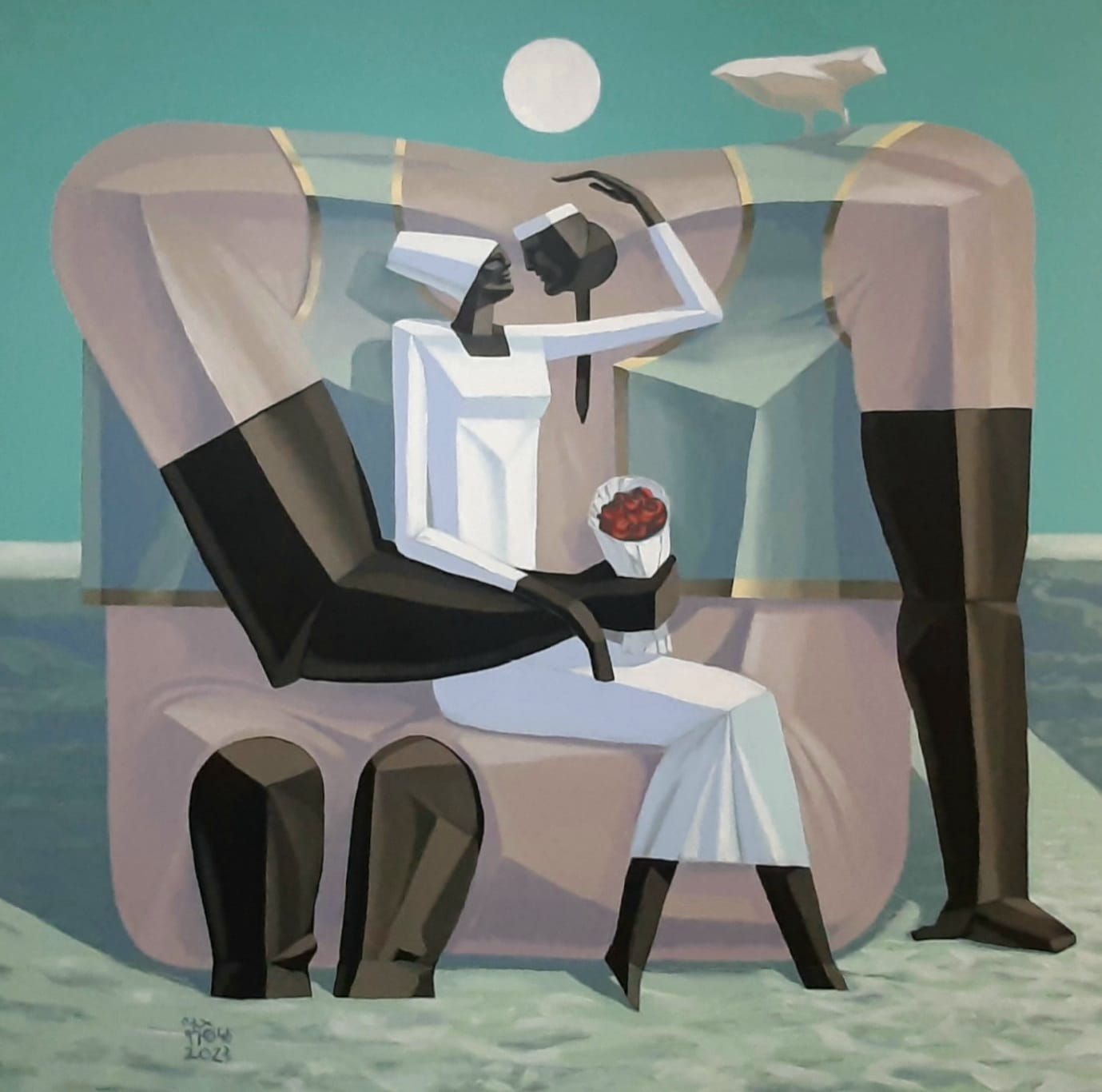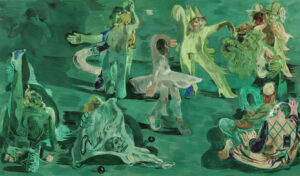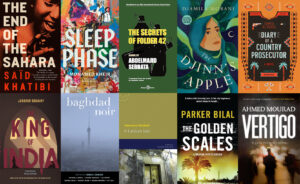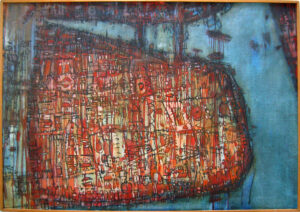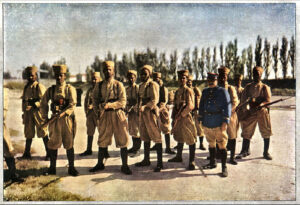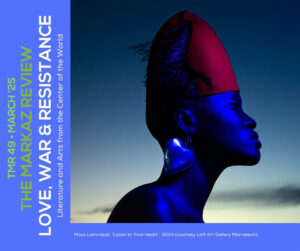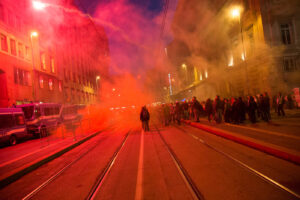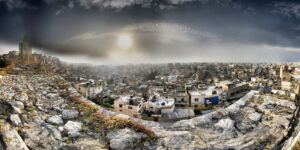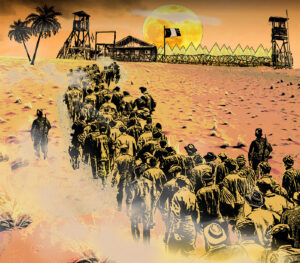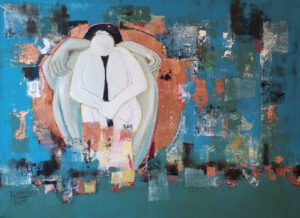A special double issue of TMR that celebrates many centers.
Malu Halasa
We had just finished editing Stories From the Markaz — “markaz,” the Arabic-Persian-Turkish-Hebrew-Urdu word for “the center” — when I saw that New York Times’ Middle East bureau chief Vivian Yee had published her cultural picks from the region. I was curious to see if her selection included any of the names or ideas we have in TMR’s special literary issue for July and August.
Instead Yee wrote about a 1994 film, an agricultural museum rarely opened to the public in Cairo, and an Egyptian singer from the 1980s. It suggested that the NYT bureau chief’s cultural experience of the “Middle East” had little to do with the contemporary currents shaping countries from Pakistan and Afghanistan in the east to Morocco in the west. It reminded me of a personal choice I made long ago: to focus on the arts, culture and literature from the region instead of political reporting.
For too long, this immense and extremely varied geographic area of different parts of the world has been seen through the news prism of winners and losers of the wars and conflicts that have taken place, some of which continue until today.
In culture, literature and the arts, people in the Middle East and North Africa, and the diaspora communities from these countries as well, speak for themselves and reveal their concerns, aspirations, humor and darkest thoughts — not for commodification in the Western press but for themselves and their communities. This creative expression is far more complex and compelling than the news. Just last month, the New York Times published an article about drought in Iran’s Sistan and Baluchestan province, on the border with Afghanistan. Even though the climate change story mentioned the recent protests that had been taking place there, it didn’t touch on the long-standing relationship that Iranian-Black Africans, descendants of slaves, have with the area. They were featured in TMR’s slideshow in the Earth issue, by the photographer Tahmineh Monzavi. She had told the same story of drought and riparian conflict through her photographs.
If pictures are worth a thousand words then short stories are worth a thousand-and-one. The Markaz Review’s special literary issue features short stories, memoir, plays, a graphic novel, and literary nonfiction. Some of it, which appears in English for the first time, was translated from Arabic or Persian. The themes are wide-ranging, from domestic abuse in Egypt from a child’s point of view to multiracial relationships in London and queer experience in Beirut. Some stories straddle that gray area between fiction and nonfiction. Feminist Ghadeer Ahmed’s “Abortion Tale: On Our Ground” incorporates direct quotations from interviews she did with women who underwent chilling, illegal abortions, in Egypt.
The nonfiction pieces address hybrid modernity, like by “Being and Belonging” with a Jewish wedding in Abu Dhabi. Literary criticism by Omid Arabian demonstrates how a chapter from the 11th-century epic Shāhnameh (Book of Kings) by Ferdowsi in part explains how political evil can seed itself in the present-day world. And Doreen Metzner’s “Rebels of the Alpujarras: a House in Granada” combines history and personal narrative.
The short stories from Iran are bittersweet. “The Long Walk of the Martyr” by award winning novelist Salar Abdoh provides an insider’s view of the lives of men in the Shia militias who fought in Iraq and Syria. Like veterans of all wars, they return to their home country confused and dissatisfied. Danial Haghighi’s “Here, Freedom” and Alireza Iranmehr’s “Arrival in the Dark” have uneasy or hardly workable relationships at the heart of their stories, due to the emotional weight of Iran’s intrusive regime. Aliyeh Ataei’s essay “My Mother is a Tree” evokes stories of those who have left home to find a new home in Europe. Wealth inequality is also a strand in the stories, whether the writing come from Lahore (“Rich and Poor People“) or Kuwait (“Hayat and the Rain“.
Pressures remain on women to marry, as seen in Natasha Tynes’s short story “The Agency” about a Jordanian matchmaking agency, on the verge of going global. Newcomer Ola Mustapha, whose debut novel Other Names, Other Places, will be published this month by Fairlight Press, upends the traditional mother-in-law joke and turns it into a spooky tale. Bint Magdaliyya explores raw female desire, and novelist Abdellah Taïa’s moving story set between Algeria and Paris “Nadira of Tlemcen” surprises us with its tenderness.
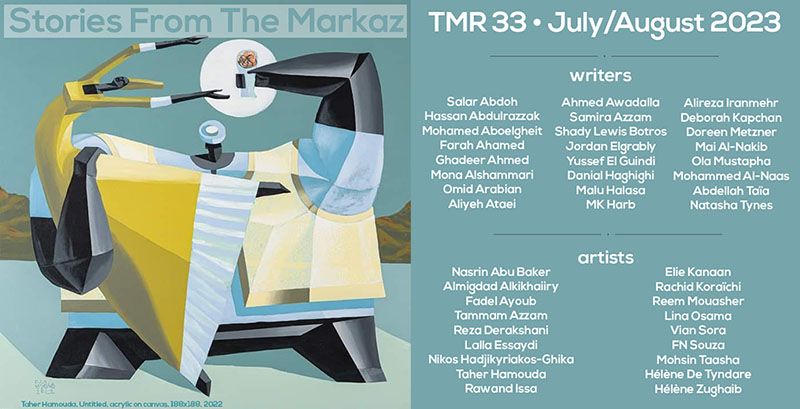
Men too are well represented in the collection, and some in their best light. “The Light at the End of the Tunnel” from the memoir Light, I Am Coming by the investigative reporter Mohamed Aboelgheit (1988–2022) are his moving last words on the human condition. The second chapter from Brief History of Genesis and East Cairo by Shady Lewis Botros is double the length of short stories that TMR usually publishes. It was so intriguing that the Markaz’s women editors insisted it be included in its entirety, in this special double monthly issue. The protagonist of “The Cactus” by young Libyan novelist Mohammed Al Naas is a man, obsessed by a woman. Meanwhile, another male character tours the bath houses in Cairo, Beirut and Berlin also looking for love, in Ahmed Awadalla’s “In Shahrazad’s Hammam.”
Even after death, an unhealthy relationship can exert an obsessive corrosiveness on the living, as seen in the novelist Mai Al-Nakib’s short story, “The Burden of Inheritance,” while MK Harb’s nuanced, poetic “The City Within” is the renewal of a long-lasting love affair — not necessarily with a person but with a place, Beirut.
On the opposite end of the spectrum is the monologue “Stamp Me” by Yussef El Guindi — a Lenny Bruce routine that never was. Hassan Abdulrazzak’s narrative from his play Four Chambers of the Heart, “The Ship No One Wanted,” presents a love story of sorts, set against the wartime exodus of Syrian refugees and informed by the experience of Jews escaping the Holocaust. The Markaz’s editor-in-chief Jordan Elgrably contributes a surprising short story about a migrant who comes to Europe, in “The Afghan and the Persian.” (This writer is also present with the story “On Ice.”)
The short story doesn’t happen in a vacuum. Samira Azzam’s “Tears from a Glass Eye” represents the evolution of the Palestinian short story as a precursor to Ghassan Kanafani’s Men in the Sun. Rawand Issa’s Inside the Giant Fish, both memoir and social commentary on the privatization of beaches in Lebanon, is part of a popular trend of graphic novels being published both at home, in their original language, and abroad, in English.
Translators have been key to Stories From The Markaz. Some changed careers mid-profession to devote themselves to arts and letters. Others have spent lifetimes building platforms or bridges for voices, which give a fuller idea of a country or place, often spotlighted in the news because of politics or religion.
I was still getting ready for the issue when I had to leave London and travel to West Yorkshire for the Bradford Literary Festival, where I spent time with the author Leila Aboulela. For our “What Lights Your Feminist Fire” panel, she read a piece she had written about the very different lives of her mother, a career woman who went on the Hajj by herself, and Aboulela’s traditional grandmother. In her mind, the Sudanese novelist said she associated age with tradition and thought her mother would eventually turn into her grandmother. But her mother defied a daughter’s expectations and remains thoroughly independent.
Aboulela is a generous writer who offered practical advice on the practice of her craft. Unlike many of us, she refuses to wake up to the news. Instead she goes straight to her desk, in a room of her own that her mother, a professional woman who worked at the dining room table, had been denied. Aboulela doesn’t leave her desk until she has written her requisite 800 words. Six novels and two collections of short stories later show that one can accomplish much on such a routine.
She suggested that all of us read a piece by Will Self on writing. Self, the British novelist and raconteur, calls his 800 words a day “Conrads” — after Joseph Conrad, a writer from whom Edward Said drew inspiration.
Stories From The Markaz is essential reading for July and August. Come back in September for TMR’s next monthly edition, on architecture, and in October for a discussion on public intellectuals. In the meantime, the publication’s weekly Monday editions will feature articles and criticism on the topical issues from the center of our Middle East and beyond.
Malu Halasa,
Literary Editor,
The Markaz Review



